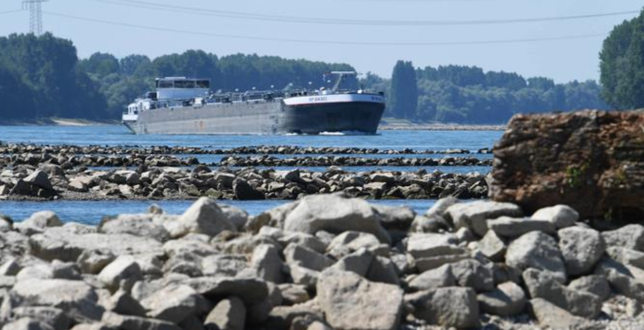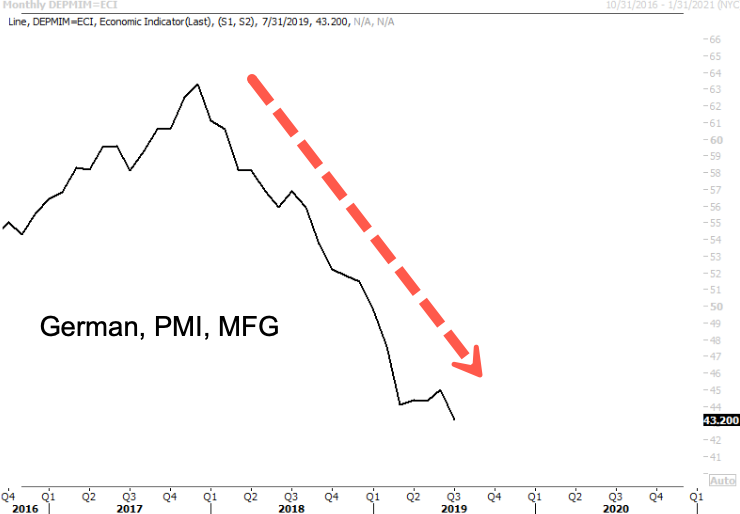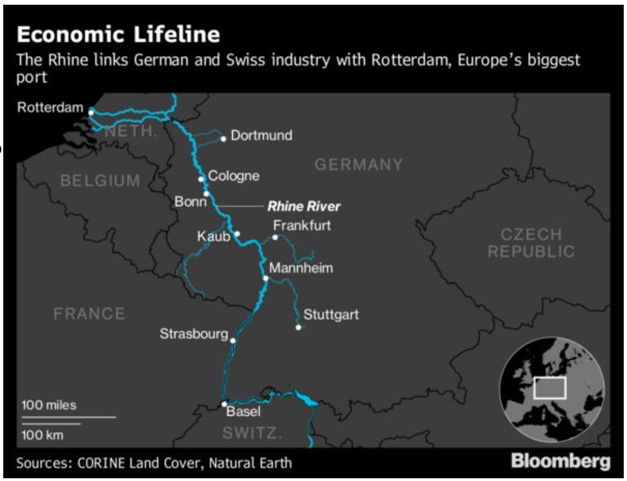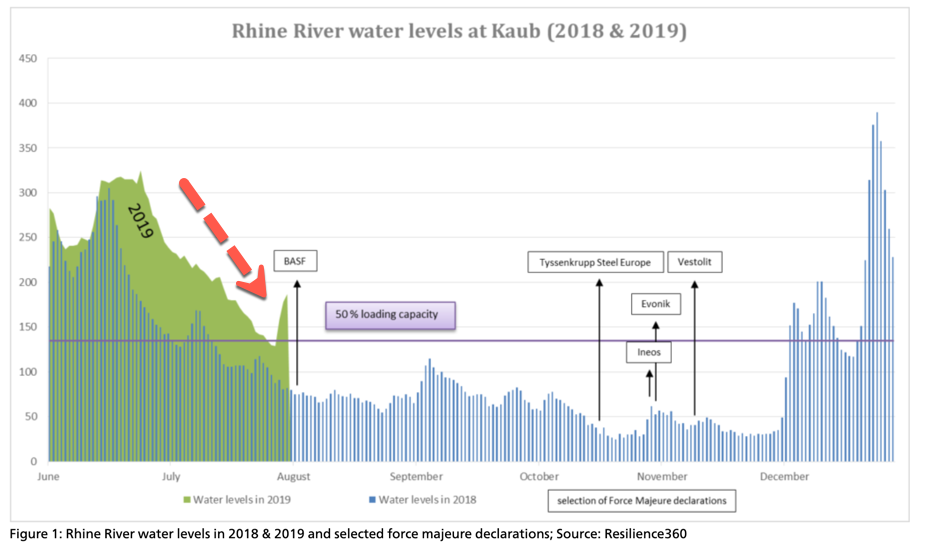Rhine
River At Dangerously
Low Water Levels Could
Cause Production Hell For
German Firms
3 August, 2019
A series of heatwaves across Central Europe this summer has brought record-breaking temperatures to Germany that sparked dangerously low water levels on the Rhine river, one of the continents most important shipping routes, which could decrease manufacturing and disrupt supply chains that might tip Germany into recession.
Water levels on the Rhine last summer made some parts of it unnavigable. This disrupted supply chains in Germany's industrial heartland that use the river for shipping.
Reuters recently reported that the shortage of rainfall this summer and scorching hot temperatures across Germany and France had made some parts of the Rhine impassable for fully loaded cargo ships.
"Approximately 80% of all goods that are transported via domestic water transport go along the River Rhine. Thus, it is Germany's most important waterway," Robert Lehmann, an economist at Germany's influential Ifo Institute research center, told CNBC Tuesday."Coal, oil, and gas or chemical products are transported with a much higher intensity: 10% to 30%. These are the main goods at the beginning of important value-added chains, thus, low water levels at the River Rhine can immediately lead to restrictions in industrial production."
Low water levels on the river could have severe economic consequences for Germany's economy that is already dealing with an industrial recession.
New economic data on Thursday showed Germany's manufacturing sector plunged in July with factories producing goods at the slowest rate in seven years and export orders crashed to the lowest in more than a decade.
Germany's automobile industry has been the most significant factor in the industrial slowdown, low water levels on the Rhine have also been seen as a factor.
Holger Schmieding, the chief economist at Berenberg Bank, told CNBC Tuesday that shipping on the river was halted last fall, this caused the production of German chemicals and pharmaceuticals to plummet by 10% from September to November and damaged the overall economy
"While some of this reflected an emerging softness in demand, the impaired shipping was the major cause. Chemicals and pharmaceuticals account for 8.3% of German industrial output and 2% of overall German value-added. So, a 10% fall in output of that sector maintained for a full quarter would reduce GDP (gross domestic product) for that quarter by 0.2 percentage points."
The Rhine flows 760 miles starting in Switzerland and goes through Germany into the Netherlands, draining into the North Sea. It's the top shipping route for intercontinental transportation of agricultural and petrochemical products.
Germany's WSV rivers authority said they're powerless in preventing the river from drying out. "The Rhine is a natural river," said Hans-Heinrich Witte, president of WSV. "There are limits to what we can do to keep it open as an industrial waterway."
Carsten Brzeski, the chief economist at ING Germany, noted last week that the German economy is at "the most dangerous crossroads since 2009" amid a broad base industrial slowdown. The sweltering temperatures just made the situation worse.
Traders told Reuters on Friday morning that water levels on some parts of the Rhine are increasing but from ultra-low levels after wet weather was seen in Germany this week.
"The northern sections of the Rhine, especially around Cologne, are still hovering around the minimum level for full loads but overall we are not facing the sort of serious problems we had last year," one trader said."But I think we will see the river moving in and out of shallow water in the coming weeks."
Unusually low water levels on the Rhine, an industrial recession in Germany, and economic stagnation across Europe, it seems like the European Central Bank will have their hands full this fall in trying to revive the Germany economy.
Does anyone know if the ECB can print water yet?




No comments:
Post a Comment
Note: only a member of this blog may post a comment.